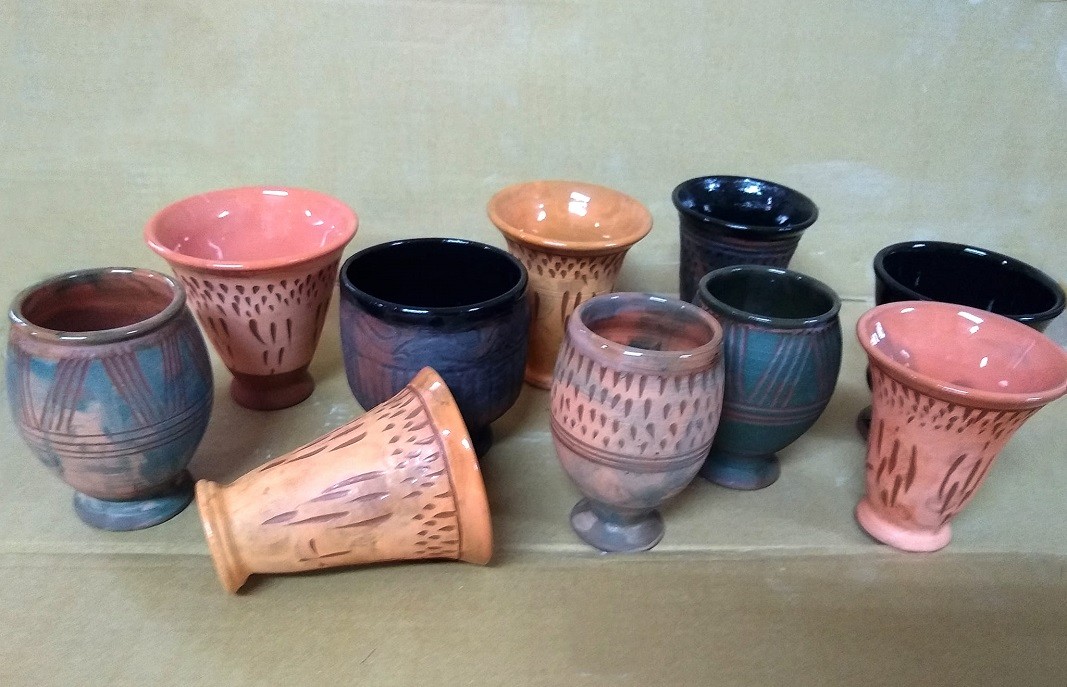Take a selfie with a shark? Or maybe don an authentic XIX century ladies hat and have your photograph taken? What is the encoded symbolic meaning of the Bulgarian scarf, and how to put it on correctly?
All this and more exciting stories can be learned and actually experienced this summer in Burgas. All you have to do is stroll through the four museum expositions of the Regional History Museum (RHM) in the city and visit the specially designated attractive selfie spots that its staff has prepared this year. Thus, with a gentle nod to the past, you get a chance to an opportunity to add more variety to your sea activities, at least for a day.

"In the Natural History Museum in one of the halls there is a panel on the wall with a great white shark for tourists to take pictures with it - tells us Milen Nikolov, director of RHM-Burgas. - In the History Museum, thanks to the director of the Burgas theatre "Adriana Budevska", we have replicas of ladies' hats from the late XIX and early XX century which are part of the theatrical wardrobe. Thus, in the exhibition hall we have created a retro photo corner with decorations and furnishings representing the interior of a rich townhouse from that period."
Hats, along with rich long gowns, were among the fashion marks of the Liberation of Bulgaria after 1878. With the adoption of the Tarnovo Constitution, the spirit of Europe began to infiltrate the streets of Veliko Tarnovo and the most visible change was in women's clothing.
At the time, this change caused both bewilderment and admiration. We find evidence of this in the yellowed pages of the Borba newspaper, where we read: 'In Tarnovo ... there are ladies, and quite a lot of them, who wear cylindrical hats like the Turkish and Albanian fezes of the old days. ...This is not our clothing, but a motley mix that makes the women look very funny. It makes you wonder if they are Turnovo women, European women, Turkish women, or Albanian women."

Nowadays hatters are almost extinct in Bulgaria, says Milen Nikolov, director of RHM-Burgas. This is why, Nikolov explains, the museum could not commission its own hats and they had to ask the theatre to lend some of their hats.
Back to history – in the days before Bulgarian women were bold enough to wear bonnets or cloche hats, the most popular head covering and identifier of marital status was the headscarf. The way it is tied, its color and the ornaments are a complex system of codes that indicate whether a woman is single, engaged or married, which region of the country she lives in, which religious denomination she is from, whether she is from a wealthy family or not.
All through the summer at the Ethnography Museum of Burgas, visitors will be able to try on authentic traditional headscarves. Milen Nikolov is grateful to the elderly ladies from the village of Lyulyakovo who helped his team to locate and buy nearly 30 of these traditional headscarves. Those who wish to will be shown exactly how to tie the headscarf and will be able to capture this moment in a keepsake photo next to a genuine Bulgarian weaving loom.
One may have the pleasure of seeing oneself as an emperor, whose face is minted on a coin, this summer at the Archaeological Museum in Burgas. In one of the halls of the museum, stands with different types of coins have been installed on the floor as an art installation and visitors will be able to take pictures of themselves depicted on an ancient coin.
Replicas of original wine glasses from Ancient Greece, Rome and the Middle Ages will be offered as souvenirs in the spirit of antiquity.

The goblets and chalices are handmade and are modeled after original artifacts discovered by Burgas archaeologists during excavations, says Milen Nikolov and proudly notes that each of them is a true work of art. For the first time a wine tasting will be organized on site, with products from a local winery. And so "the past" and "the present" in Burgas join their hands in anticipation of the new tourists.
Compiled by: Vesela Krasteva
Editor: Darina Grigorova
Photos: Facebook/burgasmuseums
Bulgaria will present its beautiful nature, sites under the auspices of UNESCO, opportunities for cultural tourism and wine temptations at the World Travel Market tourist exhibition in London, which will be held from November 5 to 7, 2024...
With its stone-roof old houses, steep alleyways winding up into the mountain, and stone fences, Kovachevitsa stands out as one of the most delightful romantic villages in the country, a breathtaking corner in the Rhodopes that seems untouched by..
Bulgaria abounds with diverse nature and beautiful places that anyone would love to visit even more than once. Many tourist destinations are accessible by train. To assist people looking for options for nature walks or trips to other cities during..
Bansko has been recognized as one of the most desired destinations during the World Travel Market London. The resort town has entered the top 10 of..
Caretaker Minister of Tourism Evtim Miloshev held a series of high-level meetings with the tourism ministers of Saudi Arabia, Qatar, Bahrain, and..

+359 2 9336 661
